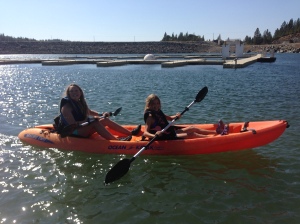 Identifying
top talent is more than just matching keywords in a resume to an
outlined job description. There's more to a candidate's ability to
respond to text book or engineered interview questions. The challenge
for recruiters is knowing how to identify talent beyond the skill sets
that we can see and finding "other" skill sets that we cannot see.
Identifying top talent is a process that usually takes several months of
on the job observation. It is for this reason that top talent
evaluation doesn't end after a candidate is offered the job. As many of
us know, the evaluation continues into the employment probationary
period. During this time, a candidate's performance is measured by their
ability to do the job, exceed tasks, and exceed expectations. However,
this process is not only expensive for the organization, but it often
doesn't consider or properly measure the larger organizational
influence. The future of how recruiters are able to identify top talent
will need to consider how talent can influence the organization as a
whole.
Identifying
top talent is more than just matching keywords in a resume to an
outlined job description. There's more to a candidate's ability to
respond to text book or engineered interview questions. The challenge
for recruiters is knowing how to identify talent beyond the skill sets
that we can see and finding "other" skill sets that we cannot see.
Identifying top talent is a process that usually takes several months of
on the job observation. It is for this reason that top talent
evaluation doesn't end after a candidate is offered the job. As many of
us know, the evaluation continues into the employment probationary
period. During this time, a candidate's performance is measured by their
ability to do the job, exceed tasks, and exceed expectations. However,
this process is not only expensive for the organization, but it often
doesn't consider or properly measure the larger organizational
influence. The future of how recruiters are able to identify top talent
will need to consider how talent can influence the organization as a
whole.Candidates impact more than just their own job assignments or scope of work. They impact the entire team and organization. They influence their coworkers, the customers and the work environment. Introducing a new member to a team is like introducing a new family member to the entire family. A new member's actions, attitude, behavior, and performance will not only require investment from everyone, but it will influence everyone's actions and involvement. In an organization, this influence will go all the way up to the CEO and all the way down to the bottom line.
So the real question is, how do recruiters identify talent that will have the greatest positive impact on all aspects of the organization? The answer is very simple, but the process is very complicated and in depth. Recruiters will need to be able to evaluate candidates based on scores provided by psychological assessments. New research is supporting these assessment processes. The ability to measure cause and effect that is involved in influencing organizational growth is rapidly becoming more prevalent in organizations looking to lead and capitalize on industry growth. Before we jump into the idea that this is a Myers-Briggs or another personality test, let's not get side tracked. New research and testing has only recently been discovered. These tests have been specifically designed to measure individual functional characteristics and their impact on teams. All other psychological assessments were never designed for such an endeavor.
The future of bringing these new assessment tools to the interview process is becoming necessary. It's just a matter of time before these new tools reach the mainstream of the recruiting process. The good news is that these new assessment tools will support quality candidate identification, they will support ideal career selection, and they will provide a basis for candidates to feel more confidence in knowing that their abilities to execute job requirements is not only measured on individual performance, but is truly measured on the overall team and organizational influence.
Author: Dr. Eduardo Diaz, helping you exceed expectations.
No comments:
Post a Comment